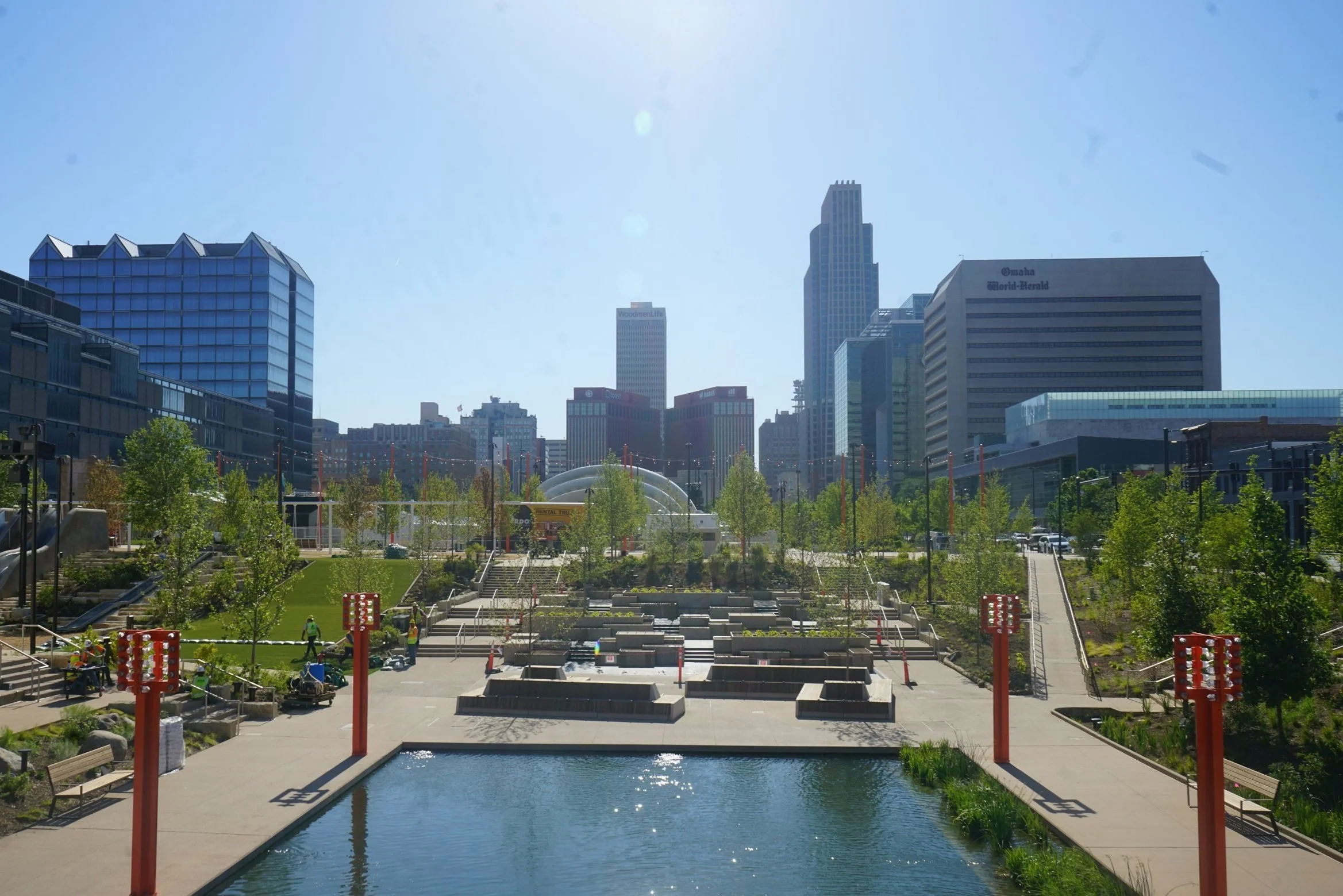Director Of Corrections Takes Questions from the Community at First Tuesday Town Hall
By Kietryn Zychal
“I’m not looking to build a new prison –– to add more prison beds–– to put more people in prison. I have no interest in that whatsoever,” said Nebraska Director of Corrections Scott Frakes midway through a town hall hosted by Black Votes Matter in North Omaha on Tuesday, Nov. 2.
Answering a question posed on behalf of Sen. Terrell McKinney (LD-11) who was not able to attend, questioning what data the Department of Corrections (DOC) used to justify building a new prison, Frakes described the condition of the existing Nebraska State Penitentiary (NSP) in Lincoln.
“I have a facility that has pieces of it in the ground, like the water system, some of it’s at least 90 years old. I suspect [...] here and there, it could be more than 100 years old. Gas pipes, steam pipes, electrical runs. They’re all buried in the ground and are challenging to fix in the best of situations.”
Last week, a water main broke at NSP leaving the facility without running water for 30 hours, from Tuesday at 5:30 p.m. to Thursday at 2 a.m., which some attendees described as “three days.” Frakes said NSP had 9,000 bottles of water on hand for drinking. He said staff filled buckets with water to flush clogged toilets manually and the DOC brought in porta-potties until the water was restored.
Frakes said fixing the existing prison while people were living in it was nearly impossible and would cost $200 million to upgrade. He said a new prison would move away from designs that are intended to warehouse people. A modern prison should have natural light, better facilities for educational and work training programs and look like a residential college campus, not a prison. “One of the problems I have with staffing is that our prisons aren’t great places for anyone. They aren’t wonderful places to live, and they are certainly not wonderful places to work in.”
Frakes tried to begin the forum by giving remarks, but he was soon interrupted by a question. When it happened a few more times, he gave up and spent the time responding to questions from the crowd.
On COVID- 19, he reported that 13 incarcerated persons have died in Nebraska since the pandemic began. Currently, there are about 10 staff at home recovering from coronavirus. Frakes said incoming prisoners are quarantined before joining the general population to prevent the spread of infection. Teri Crawford pointed out that the Prison Policy Initiative gave Nebraska an F+ for failing to adequately reduce the prison population during the pandemic and for its low vaccination rate. (Most states received an F.) Frakes replied that he has no statutory authority to reduce the population. (That authority belongs to the legislature and the Pardons Board.) He said the vaccination rate is around 60 percent because he can’t mandate that people get vaccinated. He said Nebraska’s prison rate of infection was “on track with the community rate” until August 2021.
Again and again, the discussion returned to what Frakes called a staffing crisis and the overcrowding problem, with facilities built for 3,500 people housing a high of 5,675. The population this morning was 5,520.
The staffing shortage coupled with overcrowding has caused the suspension of vital programming for prisoners.
Frakes announced “historic” wage increases that will be revealed in the near future. He said there were 100 positions available in Omaha. When questioned about applicants being disqualified for inclusion in a gang database–– regardless of whether it was true–– he promised that no applicant would be rejected until “intel” was done to determine whether classification in a gang database was warranted.
Several audience members whose loved ones were incarcerated described situations of concern in the prisons. Frakes told each to email him so he could investigate their complaints. Others suggested that funding should be diverted to community programs that would prevent crime in the first place. Frakes agreed with that sentiment.
Dominique Morgan, a formerly incarcerated person who is the executive director of Black and Pink, a prison abolitionist organization, questioned Frakes about the inadequacy of re-entry programs. Morgan said her organization would not seek to be in a partnership with the DOC on VLS (vocational life skills) programs, which are funded by the state. Frakes told Morgan to email him directly. But, Morgan said she was still waiting for a response to a letter signed by over two hundred community members and organizations about COVID-19 concerns that the DOC and governor ignored.
Attorney Timothy Ashford closed out the comments by bringing up the number of elderly prisoners who have served 30 to 40 years whom he said should be released, especially his client Edward Poindexter.
Preston Love moderated the town hall, giving a personal shout out to a state senator, candidates running for office and well-known community members. He also thanked four news stations for showing up. He echoed Ashford’s comments about elderly prisoners, again mentioning Edward Poindexter, whom he said was likely innocent and deserving of compassionate release, having served 51 years behind bars. The event was live-streamed on Facebook. Many speakers asked questions not quoted here. Love told the crowd of over 50 people that there would be a town hall at the Fabric Lab, 2514 N. 24th Street, on the first Tuesday of every month, with the next one occurring on Dec. 7 at 6 p.m., featuring Sen. Terrell McKinney.
Full disclosure: Kietryn Zychal is on Ed Poindexter’s visiting list. She researched and wrote the series Forgotten Panthers for NOISE.












